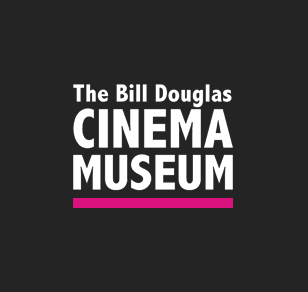Faculty of Media and Communication
Research Seminar Series 2016-17
A Conflict, Rule of Law and Society
Research Seminar
Venue: F309, Fusion Building, Talbot Campus, Bournemouth University, Fern Barrow, Poole, Dorset, BH12 5BB
Wednesday 12 October 2016 at 4pm
Conflict, Rule of Law and Society Welcomes:
Prof Geoffrey Samuel, University of Kent
The Paradigm Case: Is Reasoning and Writing in Film Studies Comparable To (or With) Reasoning and Writing in Law?
To what extent can theories or models that have been developed by literary and film theorists inform legal knowledge? Can any such literary and film models offer any serious insights to legal epistemology or are such ‘borrowings’ likely to remain at best rather superficial? The purpose of this contribution is to suggest that there are a number of theories – or at least models – that can prove quite fruitful for lawyers. Three, in particular, will be examined: namely personification theory, representation theory and reception theory. Personification theory is concerned with the notion of persona in cinema, theatre and literature and reflects, in particular, on the relevance of identity in films like Vertigo (1958) and Phoenix (2014). Persona, of course, is both a literary and a legal concept and so there is, however tenuous, a direct conceptual connection. Representation theory (see Bacon extract overleaf) has already had some impact on law – it can be seen as an aspect of fiction theory (see Vaihinger) – and this impact might be revived with the publication of a recent work by Professor Mathieu. Reception theory (see Dzialo overleaf) is more closely associated with hermeneutics which of course as a scheme of intelligibility has attracted much attention from jurists. Nevertheless the categories of text developed by Stagier have, perhaps, a particular reference for the jurist: what is the relationship between legal texts and their readers and does this relationship vary according to the nature of the text in question? One further point will be developed with respect to these theories or models mentioned. Perhaps labelling them as ‘theories’ or ‘methods’ is unhelpful; a more fruitful label might be one mentioned by Bouriau in his examination of Vaihinger’s ‘as if’ (comme si) fiction theory. It is not so much a theory; it is more of an ‘epistemological attitude’ (attitude épistémique).
Geoffrey Samuel Born in 1947 in England, Geoffrey Samuel is currently a Professor of Law at the University of Kent and a Professor affilié at the École de droit, Sciences Po, Paris. He received his legal education at the University of Cambridge and holds doctoral degrees from the Universities of Cambridge, Maastricht and Nancy 2 (honoris causa). He has also held many visiting posts in France, Belgium and Switzerland and is still a visiting professor in Rome (Tor Vergata), Fribourg and Aix-en-Provence. Geoffrey Samuel is the author of many books on contract, tort, remedies, legal reasoning and legal epistemology, the most recent being An Introduction to Comparative Law Theory and Method (Hart, 2014) and A Short Introduction to Judging and to Legal Reasoning (Edward Elgar, 2016). His areas of specialisation are the law of obligations, comparative law and legal reasoning.
All are welcome and we look forward to seeing you there!
About the series
This new seminar series showcases current research across different disciplines and approaches within the Faculty of Media and Communication at BU. The research seminars include invited speakers in the fields of journalism, politics, narrative studies, media, communication and marketing studies. The aim is to celebrate the diversity of research across departments in the faculty and also generate dialogue and discussion between those areas of research.
Contributions include speakers on behalf of
The Centre for Politics and Media Research
Promotional Cultures and Communication Centre
Centre for Public Relations Research and Professional Practice
Centre for the Study of Journalism, Culture and Community (JRG and NRG)
Centre for Intellectual Property Policy & Management
Conflict, Rule of Law and Society
EMERGE
Centre for Film and Television
 CEMP’s Professor Julian McDougall has been awarded the Bill Douglas Cinema Museum Research Stipend.
CEMP’s Professor Julian McDougall has been awarded the Bill Douglas Cinema Museum Research Stipend.











 REF Code of Practice consultation is open!
REF Code of Practice consultation is open! BU Leads AI-Driven Work Package in EU Horizon SUSHEAS Project
BU Leads AI-Driven Work Package in EU Horizon SUSHEAS Project Evidence Synthesis Centre open at Kathmandu University
Evidence Synthesis Centre open at Kathmandu University Expand Your Impact: Collaboration and Networking Workshops for Researchers
Expand Your Impact: Collaboration and Networking Workshops for Researchers ECR Funding Open Call: Research Culture & Community Grant – Apply now
ECR Funding Open Call: Research Culture & Community Grant – Apply now ECR Funding Open Call: Research Culture & Community Grant – Application Deadline Friday 12 December
ECR Funding Open Call: Research Culture & Community Grant – Application Deadline Friday 12 December MSCA Postdoctoral Fellowships 2025 Call
MSCA Postdoctoral Fellowships 2025 Call ERC Advanced Grant 2025 Webinar
ERC Advanced Grant 2025 Webinar Update on UKRO services
Update on UKRO services European research project exploring use of ‘virtual twins’ to better manage metabolic associated fatty liver disease
European research project exploring use of ‘virtual twins’ to better manage metabolic associated fatty liver disease